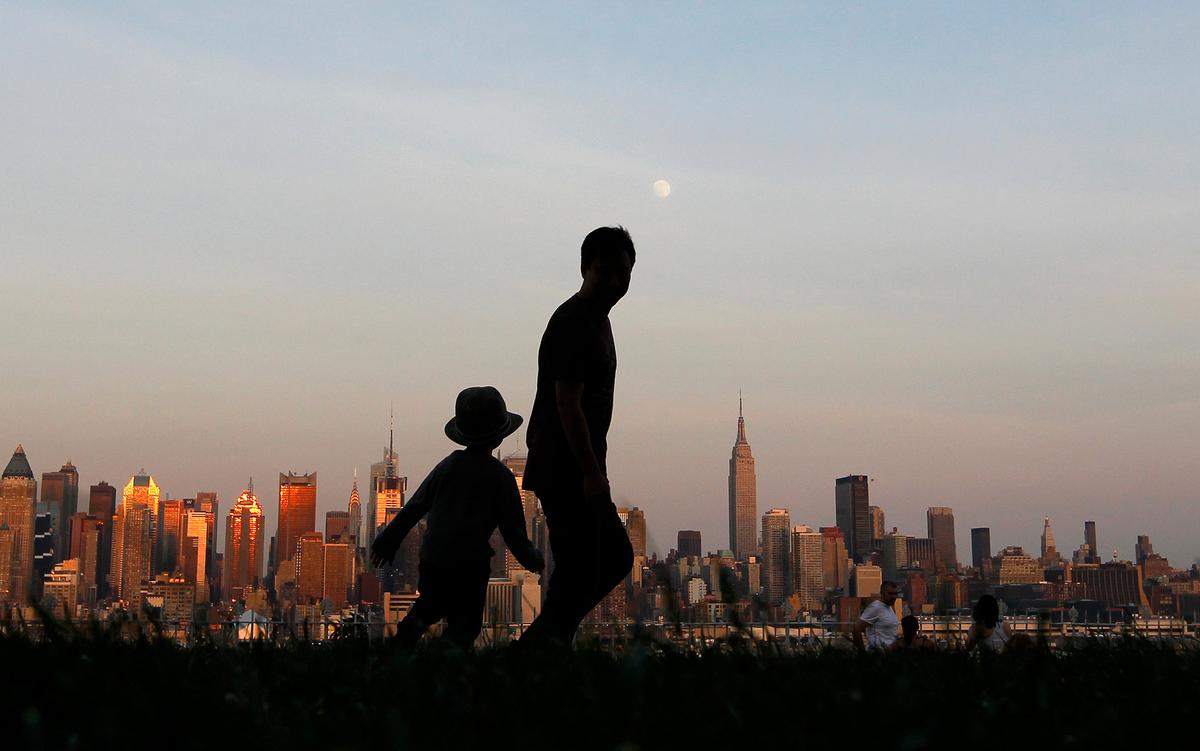In an era marked by a quest for justice and equality, how do we define our individual strides towards a more unified society? This question resonates profoundly against the backdrop of recent societal upheavals, challenging us to reflect on the intertwined narratives of Ferguson and New York City. The Bahá’í teachings impart essential insights that can guide individuals and communities seeking to effect meaningful change while fostering a spirit of unity.
The journey from Ferguson to New York City is emblematic of a broader struggle against systemic injustices. Ferguson, a small city in Missouri, became a focal point for social activism following the tragic shooting of Michael Brown in 2014. This event illuminated the pervasive issues of racial inequality, police brutality, and the urgent call for justice that reverberated across the United States. In contrast, New York City has long stood as a bustling metropolis, a beacon of diversity and cultural affinity. Yet, beneath its vibrant facade lies a tapestry woven with historical inequities and contemporary challenges. How do the teachings of the Bahá’í faith inform our understanding of these interconnected struggles?
At the core of Bahá’í teachings is the principle of unity. The idea that humanity is one, regardless of race, nationality, or social status, invites us to transcend artificial barriers. This perspective prompts individuals to engage deeply with the concept of justice—not merely as a legal construct but as a profound spiritual and moral imperative. Walking the streets of New York City while remembering the urgency of Ferguson’s message encourages each of us to embody this principle in our daily interactions.
To find our stride, it is essential to cultivate a consciousness that emphasizes the importance of consultation—a fundamental practice within the Bahá’í community. Consultation involves not only dialogue but also the conscientious process of collective decision-making that respects diverse viewpoints. In the context of Ferguson’s lessons, this means engaging with affected communities, listening to their narratives, and incorporating their experiences into our collective understanding. By fostering such democratic spaces, we create an environment where individuals feel valued, respected, and empowered.
Engagement begins at the local level. One effective avenue is through community organizing, an integral aspect of social justice movements. The Bahá’í principle of service can inspire individuals to initiate grassroots efforts that address the systemic structures contributing to injustice. This may manifest in organizing events that promote education, dialogue, and activism surrounding issues pertinent to marginalized communities. For example, a community meeting could focus on the intersection of race and policing, encouraging transparent discussions about biases and strategies for reform.
However, the challenge lies in overcoming complacency. Reflecting on the post-Ferguson landscape, it’s evident that mere acknowledgment of injustice is insufficient. You might wonder: what tangible actions can we take to ensure that the conversations continue past the initial outrage? The answer lies in sustained commitment—ensuring that discussions translate into persistent advocacy. The Bahá’í teachings emphasize the importance of perseverance, particularly in the face of adversity. Each stride taken should serve to inspire others, creating a ripple effect that reverberates through communities.
Education plays a pivotal role in this journey toward justice. The Bahá’í writings advocate for the upliftment of society through knowledge, asserting that “Education is the most potent instrument for the transformation of society.” Therefore, developing programs that educate youth about social justice and the transformative power of unity can empower future generations. Workshops or seminars that delve into the implications of racism, privilege, and systemic oppression can serve as critical platforms for awareness. Such initiatives can be tailored to engage diverse audiences, fostering empathy and understanding across various demographics.
Additionally, art and creative expressions can catalyze dialogues around justice and unity. Similar to how Ferguson’s stories echoed through various forms of media, the arts can be instrumental in articulating the complexities of our experiences. Whether through music, poetry, or visual art, these expressions provide a means to communicate the ineffable, bridging divides and fostering community connections. Art can catalyze a transformative discourse—one that challenges perceptions and nurtures the spirit of togetherness.
Yet, even as we take individual and collective strides toward justice, we must remain vigilant against the shadows of division. The Bahá’í teachings caution against prejudice in all forms. Our efforts must reflect a conscious rejection of anything that undermines the oneness of humanity. This reinforces the need for regular self-reflection and accountability. As individuals engaged in this journey, one must ask: Am I embodying the principles of justice, unity, and love in my responses to others? This introspective inquiry can illuminate areas for personal growth and inspire a collective effort to uphold the tenets of humanity’s shared destiny.
Ultimately, the road from Ferguson to New York City cannot be traversed in isolation. It calls for solidarity among individuals, nations, and peoples—a recognition that the work toward justice is interconnected and necessitates collaborative efforts. The Bahá’í principle of collective action is critical to sustainable change. Movements gain momentum not merely through the contributions of a few, but through the unwavering commitment of many, unified in purpose and vision.
As we navigate towards a just society, the essence of the Bahá’í teachings beckons us to find our stride. It is a call to action, urging us to engage deeply with one another, to embrace diversity, and to recognize our shared humanity. By weaving the lessons from Ferguson with the spirit of New York City, we can foster a culture that champions justice, inclusiveness, and unity. After all, each step we take is a testament to our commitment to a brighter future—one where every individual is valued and every voice is heard.
